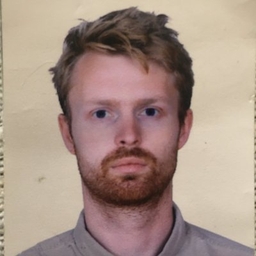
Tom Gardner
Africa Correspondent at The Economist
Africa correspondent @TheEconomist // Author, "The Abiy Project: God, Power and War in the New Ethiopia” Beginning to migrate over to: @tomgardner18.bsk.social
Articles
-
2 months ago |
foreignaffairs.com | Ken Opalo |Tom Gardner
Gardner’s account of the rise of Ethiopian Prime Minister Abiy Ahmed is essential reading for those interested in understanding how individual ambition and structural factors combine to mold a leader’s choices. His efforts to consolidate power and push through his vision of modernizing Ethiopia’s economy and politics have been hobbled by the country’s legacy of ethnic politics. A child soldier at 14, then a successful commander, military officer, and politician, Abiy became prime minister in 2018.
-
2 months ago |
economist.com | Tom Gardner
The Inuit on Little Diomede are watched over by Russian soldiers. But that's not their biggest problem in these icy badlandsScenes from the earthquake's aftermathThe Vatican wants him to be the next Mother Teresa. But what did Carlo Acutis really believe? The Russian invasion has created an epidemic of phantom pain. My jaw is just one of the casualties They claim to fight for victims, but are they just trying to go viral? Syria's new president is a chameleon.
-
Nov 19, 2024 |
economist.com | Tom Gardner
The outside world cares less about it than about Gaza and UkraineBy Tom Gardner, Africa correspondent, The EconomistNo city in Sudan besides the capital, Khartoum, is more fiercely fought over than el-Fasher, in the western region of Darfur. For much of 2024 it was under siege by the Rapid Support Forces (rsf), a paramilitary group that has spent more than 18 months trying to vanquish the regular Sudanese army, the Sudanese Armed Forces (saf), and seize control of the state.
-
Nov 19, 2024 |
economist.com | Tom Gardner
Neither democracies in Africa nor the West will force them By Tom Gardner, Africa correspondent, The Economist The covid pandemic accelerated a general turn away from free and fair elections in Africa. Several governments—most notably Ethiopia’s—took the virus as an excuse to delay, or otherwise tamper with, the electoral process. Most alarming, however, was the flurry of coups, starting with Mali in 2020, followed swiftly by Guinea, Sudan, Burkina Faso, Niger, Gabon and arguably Chad.
-
Oct 31, 2024 |
literaryreview.co.uk | Tom Gardner
Building a state takes decades of hard labour. Destroying one can be done virtually overnight. In September 2018, the prime minister of Ethiopia, Abiy Ahmed, flew to the Eritrean capital, Asmara, to sign a tripartite pact with Isaias Afwerki and Mohamed Abdullahi (known as ‘Farmaajo’), presidents of Eritrea and Somalia respectively. Both Abiy and Farmaajo were young and charming, apparently free of the shackles of their countries’ troubled pasts.
Try JournoFinder For Free
Search and contact over 1M+ journalist profiles, browse 100M+ articles, and unlock powerful PR tools.
Start Your 7-Day Free Trial →X (formerly Twitter)
- Followers
- 30K
- Tweets
- 9K
- DMs Open
- No

https://t.co/VJmT9HzPpI

RT @addisinsight: The word "Free" in this infographic carries a double meaning: it calls for the release of jailed doctors and highlights t…

RT @Jawar_Mohammed: The @USEmbassyAddis’s decision to revise its earlier statement, removing its call for the Ethiopian federal government…